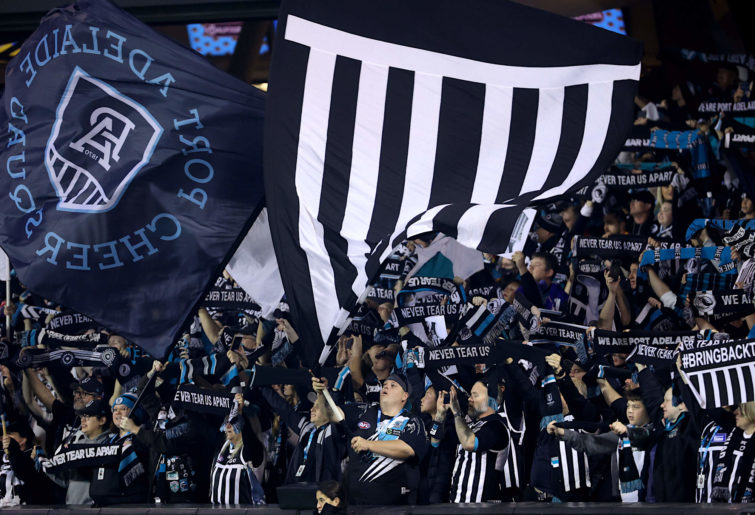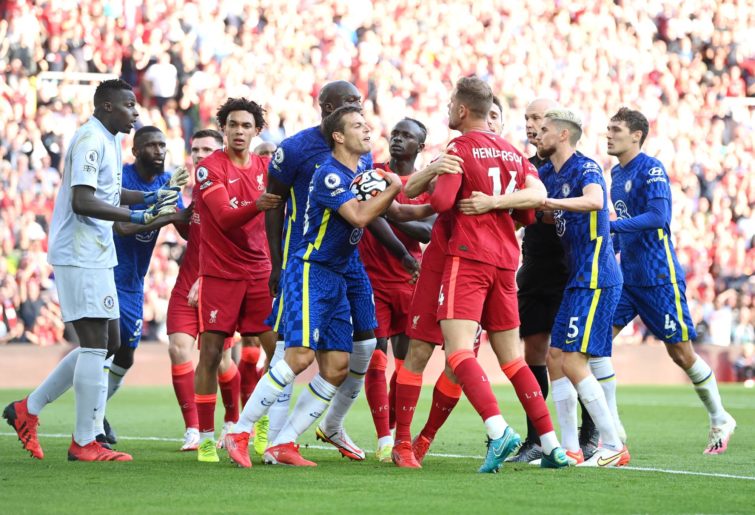In this extract from his new book Now That’s What I Call Football: What the Premier League can learn from Aussie Rules Robert Moore argues whether it’s too much to ask for professional sporting institutions to make honest endeavours to meet and beat their opponents on a level playing field and show integrity and dignity on and off the pitch?
A meritocracy within an egalitarian framework where teams triumph over adversity through a combination of talent, planning, cunning and character is surely the bedrock of sporting fulfilment.
With measures in place to regulate and equalise spending on players and coaching staff, allow access to talent via a draft based on need and share central revenue to address any imbalance based on size, support, geography or historical achievements, a premium is placed on running AFL clubs in the shrewdest and most imaginative way possible.
Clubs understand the importance of a long-term recruitment strategy and make a commitment to develop their own talent. Those that are able to establish cultures based on honesty, selflessness and courage tend to succeed where their indisciplined, profligate and timid foes fail.
The AFL’s system protects and promotes the idea of an old-fashioned club which serves members and supporters rather than the commercial interests of whoever may have purchased a related holding company. With very few exceptions, people pay reasonable prices to attend matches feeling safe and free to express passion for their club, with unsegregated rival fans interacting free from the fear of unrest, hooliganism and lawlessness.

(Photo by James Elsby/AFL Photos via Getty Images)
In a league set up for no poorly performing club to have any excuse for long-term failure, purposefully utilising resources to transform an ailing club’s fortunes and attain success while living within their means is never unattainable.
By contrast, English football has travelled so far down the road to ruin that young children supporting any club outside the top six cannot realistically believe that their team will one day reach the top of the mountain. Meanwhile, fans of football’s upper classes are no longer cheering on a team of sportsmen, but the brand identity of a global entertainment industry corporation.
The Premier League’s soulless embrace of hyper-capitalism has destroyed the inherent unpredictability of sport. A small group of super-clubs who have benefited from billionaire benefactors or being mortgaged to the eyeballs are so financially insulated that they are winning more games by more goals than ever before, often without having to get out of second gear. This has caused the entire sport to transform and shift into a painfully routine spectacle of sterile domination where wealth now dictates the game to an unprecedented extent.
The norms and systems in relation to the distribution of TV rights windfalls and prize money as well as unlimited transfers, wages and squad sizes all serve to make the rich and powerful more rich and powerful. Loyalty and patience are laughable concepts to the majority of players, managers and even clubs that can be sold to the highest bidder on a whim. Rather than being challenged, the advantages of those who are already winning are amplified.
Not so in the AFL. The success of a vibrant competition, in which anything is possible, has been built on a solid conviction that the wider it grows the base of the pyramid, the higher the top of the pyramid will be.

(Photo by Daniel Carson/AFL Photos via Getty Images)
The league’s firm but fair governance of all its clubs means that although there are obviously financial powerhouses and fiscal minnows, every club has an equal opportunity to thrive on the field. The successful clubs are not necessarily rich, or even economically stable and secure, but they have been able to harness the commitment and skill of administrators, coaches, players and every other individual at the club from the president to the press officer to build an inclusive and positive culture of excellence.
The primary role of the AFL Commission is to ensure competitive balance across all 18 clubs while also developing the pathways of future stars, overseeing the game’s grassroots and retaining a commitment to being an inclusive social leader.
The Premier League is happy to sit back, negotiate record-breaking TV deals and leave the rest to cut-throat capitalism. The idea that broadcast revenue should trickle – or, more accurately, cascade – down football’s treasured eco-system to maintain the overall health of the game is something the Premier League and its clubs have no real interest in and the gutless FA are unwilling and/or unable to fight for.
However, in following this approach you get insolvent clubs like Portsmouth, Blackpool, Bradford, Bolton and dozens more who left to their own devices were destroyed from the inside out with no measures in place to protect the number one cultural asset that each town or city possesses.
Organised correctly, football is the social glue that brings together communities regardless of class, religion, politics or ethnicity, providing endless intrigue, controversy and conjecture. Undying supporter loyalty means that clubs are figuratively owned by a far wider group of people than the shareholders who have their names on the legal paperwork at any given point in time. But parasitic owners are allowed to make a mockery of this idealism by treating clubs as their fleeting plaything and fans as mere commodities to be exploited.
Boosted by Champions League riches and protected by the misnomer that is Financial Fair Play from competitors emerging from outside of the established elite, big six owners defy financial gravity while others face clear and insurmountable barriers to success. Every Premier League club has benefited from multi-billion pound TV deals but it just means that the disparity between rich and poor has changed to a similar sized chasm between rich and super-rich. Owners meetings no longer involve the haves and have-nots, rather the haves and have-yachts.

(Photo by Michael Regan/Getty Images)
As money has grown more and more central to a club’s success, conversations between fans have gone from discussing a left winger’s crossing or a manager’s formation to intrigue over a club’s net spend or an overseas owner’s debt financing plans.
Perhaps if newspapers printed the wage bills of teams next to their scoreline then it would help to persuade the public how polarised and patently unfair the ‘competition’ they are watching really is. Manchester United 1, Burnley 0 would become Manchester United (£352m) 1, Burnley (£87m) 0 and suddenly the league table would make a whole lot more sense.
The intrinsic value of a league can only be enhanced by more uncertainty and suspense relating to the outcome of its matches. Expensively assembled teams of superstars continually and inevitably beating outclassed rivals is not a genuine competition, it’s a glorified pageant.
Take away the unpredictability and all we are left with is 22 players running around the same old grounds which serve as a reassuring but staid TV set for a series which will never be cancelled yet features the same old storylines and stultified fans serving as extras.
Sadly, the genie cannot be put back in the bottle.
Sport at its best gives you feelings of awe and wonder that are so hard to find in any other area of life. It is a refreshing antidote to the often crushing inanity of existence. Even when fans experience the lowest lows and are beaten down by years of incompetence, the ability to cling on to hope that some day soon you will be the pigeon and not the statue sustains you through your darkest days.
This hope exists in the AFL.
In the Premier League, this hope has been crushed.
Money talks. Sometimes you wish it would just shut up.
This is an extract from Now That’s What I Call Football: What the Premier League can learn from Aussie Rules, available to purchase through this link.































































































